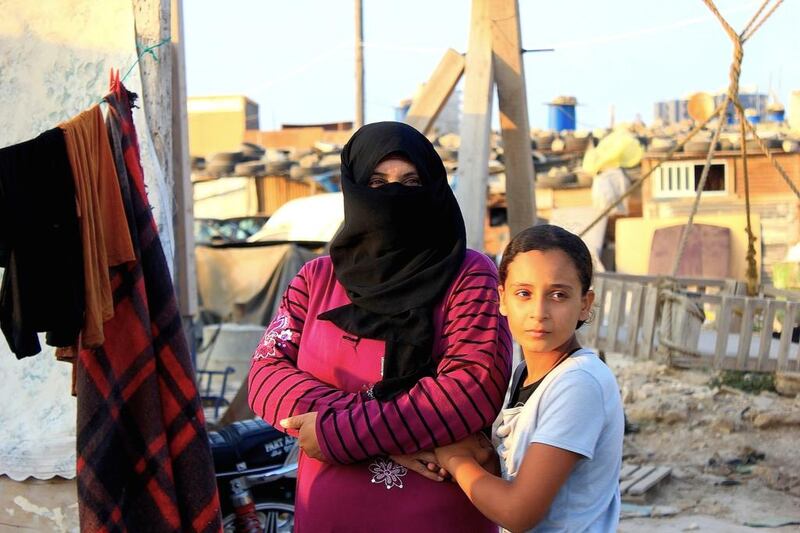I met Fatima and her two daughters, then aged 9 and 13, in 2012. They lived in a shanty settlement in the outskirts of Tripoli, where the blue-collared segment of Lebanese working classes formed the upper crust.
Fatima had taken the decision to flee Syria on the spur of one defining moment – the bombing of her home that claimed her husband’s life. I first met the family during Ramadan. We broke bread together at sunset, feeling the heat that rose from the parched earth and penetrated through the thin bamboo mats laid out as carpeting.
A few stacked mattresses, a hearth behind a curtain that served as a division between the living room and kitchen and one wooden cot at the entrance – spartan would be an embellishment in describing the home.
Four years later, it was easy enough to find Fatima. She lives in the same place. The daughters have matured into reserved but polite young women, while a permanent fatigue has lined their mother’s face. Little else has changed.
With a majority of the Syrian population in Lebanon spending their fourth or fifth Ramadan away from home, the crisis appears insurmountable.
“We are neither here, nor there,” Fatima laughs. The double entendre makes us, the visitors, grimace in acknowledgement. The struggles of Syrian refugees stuck in Lebanon are daunting in their repetition of misery. People who arrived with assets have been made poor by deprivation and restrictive policies, while paranoia and resentment among hosts have increased after five years.
Fatima has attended several interviews for resettlement, but the “lottery”, with a 1 per cent acceptance rate, “has not blessed me”, as she puts it. Meanwhile, she has lapsed on paying the fees for maintaining legal residence in Lebanon, making her all the more vulnerable to abuse.
The condition of the refugees who have remained in Lebanon raises an important question. Is it possible to create social resilience between refugees and host communities despite a fragile state?
For example, Fatima would like to be able to work, and deposit her savings, for her daughters to attend school and for the family to live without friction with her Lebanese neighbours.
The first step towards creating these conditions is to grant “personhood” to refugees. The recognition of their existence as individuals starts with less onerous ways of maintaining a legal status. This is also the best means of preventing “black economies” from profiteering. Opening a bank account, for instance, is an empowering and mutually beneficial step.
Second, Fatima’s daughters have not benefited from the second-shift system that has been introduced in Lebanese schools. The long journey home past dusk is a risk not worth taking for two adolescent girls, given the prevalence of sexual violence towards refugee women.
And this lack of access to basic services speaks to the heart of the issue. Lebanon’s sizeable banking sector, which is 2.5 times the value of the country’s economy, could jump-start development programmes. Given that the Lebanese communities in which most Syrian refugees have made their homes are often also poor, banks should inject services into entire neighbourhoods. This would help prevent resentment between hosts and refugees.
Lastly, direct cash assistance, as opposed to aid vouchers, would help Fatima meet her family’s needs and use any savings to create her own enterprise.
If such cash disbursements were coupled with microfinance loans from the banks, that target entire communities based on their traditional sources of livelihoods, the effect would be all encompassing.
Strengthening the bargaining power of the poorest Lebanese citizens who have become the default neighbours and hosts of a majority of the refugees is the most effective way forward.
In a country with large disparities between citizens, and common needs between hosts and refugees, the private sector can create futures for both, despite the state’s record of general malfeasance.
Preethi Nallu is a multimedia and print journalist focused on migration.





